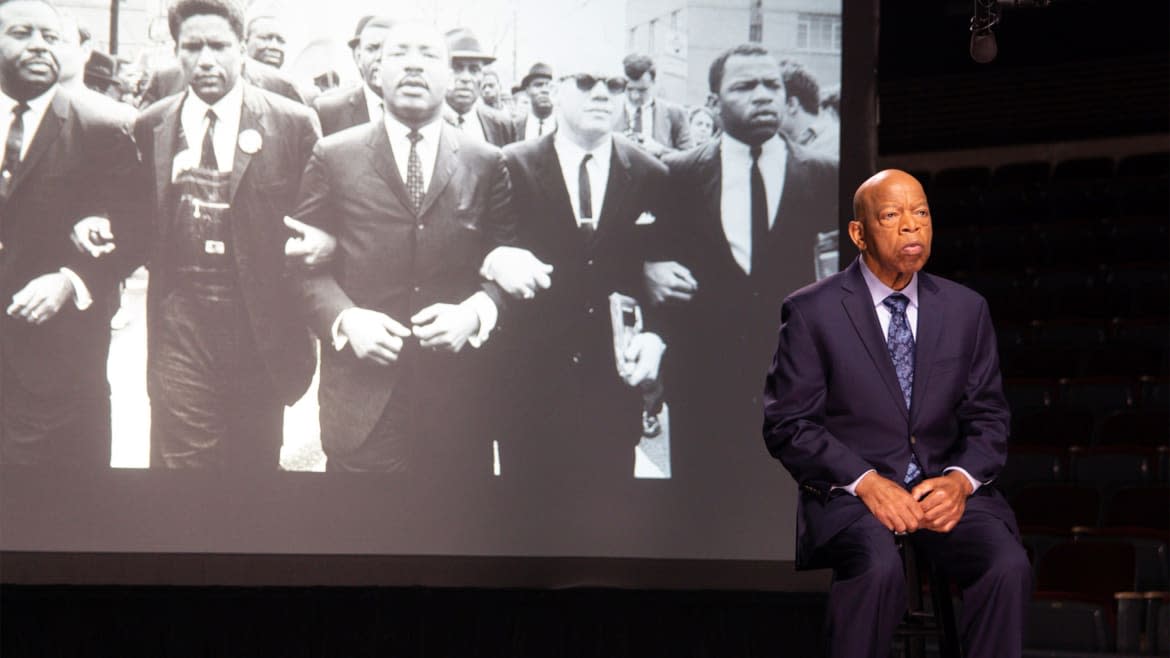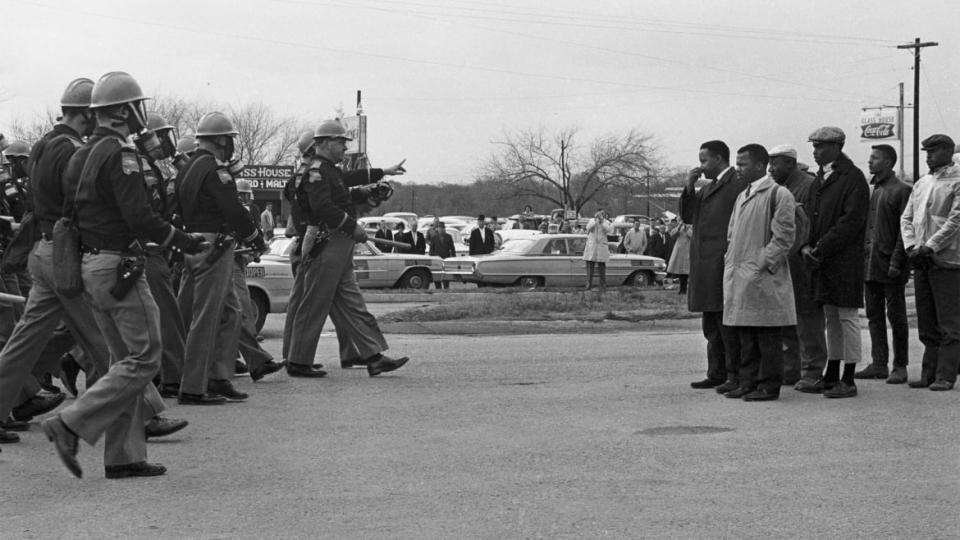What’s Missing From Civil Rights Icon John Lewis’ Fight for Black Lives

Wherever you come down on nonviolence—whether or not Malcolm X’s famous challenge to the practice resonates more than Martin Luther King Jr.’s longtime embrace of it or, perhaps, your move away from more patriarchal tenets and into the framework of transformative justice—there is much to be grateful for in Rep. John Lewis. The documentary Good Trouble, which comes out on demand July 3, takes a dutiful if often unimaginative approach to situating Lewis’ nonviolent and interracial activism and political career in the civil rights movement. What’s most worth taking from the film is Lewis’ appeal to an expansive spiritual center in freedom work.
The writer James Baldwin always understood how vital various Black activist leaders were during the life-or-death momentum of the civil rights movement, even and especially when taking their political differences into account. In the manuscript Remember This House (adapted in Raoul Peck’s documentary I Am Not Your Negro), Baldwin wrote about his friends Malcolm, Martin, and anti-segregation activist Medgar Evers, who was also assassinated in the mid-’60s, “I want these three lives to bang against and reveal each other, as in truth they did and use their dreadful journey as a means of instructing people whom they loved so much, who betrayed them, and for whom they gave their lives.”
The Insidious Racism of White Actors Voicing Black Animated Characters
Hollywood Celebs Are Praising an Anti-Semitic Hatemonger
Baldwin understood that Black activism, particularly within the civil rights movement, was a kind of optimistic sacrifice. Even Malcolm X, in moving away from the Nation of Islam and becoming a Sunni Muslim, relinquished a framework of racial separatism and came to respect more liberal organizations like the SNCC (which, right around Malcolm’s death, rejected MLK Jr. as a messainic figure and expelled white members to become an all-Black organization). Lewis, who attended Malcolm X’s funeral, explained in an interview that Southern civil rights activists “saw Malcolm as paradoxical to our own philosophy, to our own methods of operating in the South. But we were willing to listen to Malcolm, because on one hand, [he] inspired us. Malcolm [...] said things in New York, in particular, in Chicago, but around the country, that maybe some people in the South, or in other parts of the country, didn't have the courage to say.”
Good Trouble emphasizes the kind of meditative spirituality that has propelled Lewis’ freedom work both within the political sphere and beyond it while also revealing how adherence to a deeply hierarchical political system can greatly limit that work.
While the film characterizes the nonviolent majority of the civil rights movement as “radical,” the many Black radicals who became involved in the Black Panthers, Black Liberation Army, American Communist Party, and more would not agree. The nonviolence movement within the civil rights movement was rooted in Christianity, though the tenants of nonviolence or Ahimsa are grounded in Eastern religious belief—particularly Buddhism, Hinduism, and Jainism as practiced in India. Still, nonviolence as a method for freedom work has swirled around the continents: Russian novelist Leo Tolstoy’s belief in passive resistance inspired the most famous nonviolence practitioner, Mahatma Gandhi, who in turn inspired King as well as labor activists Dolores Huerta and Cesar Chávez in the U.S.
Lewis has at times romanticized his brutalization by police—and one might argue that his softness on these experiences stems from his spirituality. The congressman supports the Black Lives Matter movement but rejects the appeal to Black power. Yes, it’s important to point out that Black life is not valued equally in our society, but to Lewis, to insist on attaining power would be a negation of love. Kwame Ture, formerly Stokely Carmichael, a Freedom Rider, took over leadership of the SNCC in 1966 (Lewis was elected to Congress in 1986); this move led to the separatism of the SNCC, though Ture eventually stepped down as he rose in fame as leader of the Black Power movement and eventually joined the Black Panther Party. Black radical circles where activists like Ture were focused on liberation rather than coexistence came to scorn the moralism and party-politics focus of the nonviolent crew. The only figure who has somewhat successfully been able to bridge this gulf has been Cornel West, a Christian socialist who politically falls further left than Lewis, but also adheres to a worldview centered on love and moralism and recently campaigned for Bernie Sanders.

Rep. Lewis frequently speaks about “saving our democracy” in the U.S., which suggests that we have had a democracy in the first place. It’s fair to debate this question, though it’s undeniable—and Lewis knows this probably better than anyone else alive—that democracy has been systematically denied to Black people from the day our ancestors were kidnapped from Africa and brought to the Americas. “Saving our democracy,” then, means continuing to fight for inclusion in a set of rights that has mostly been secured and protected for wealthy white able-bodied cis heterosexual men—usually with their working-class counterparts engaging in the dirty work of lynching and policing.
“Good trouble,” then, is the idea that we can practice love while refusing injustice—a noble idea that has to shift with time, because refusal looks different every generation, even every year. What Lewis does now is a kind of cooperation—not with the Trump administration, but with a Democratic Party system that has gleefully participated in its own fair share of violence, both domestically and abroad. Nonviolence and peace are instead being revitalized as rigorous concepts by prison and police abolitionists as well as decolonial thinkers and healers, who believe we must work outside of the state to ever develop justice- and freedom-oriented ways of living and healing.
Get our top stories in your inbox every day. Sign up now!
Daily Beast Membership: Beast Inside goes deeper on the stories that matter to you. Learn more.

